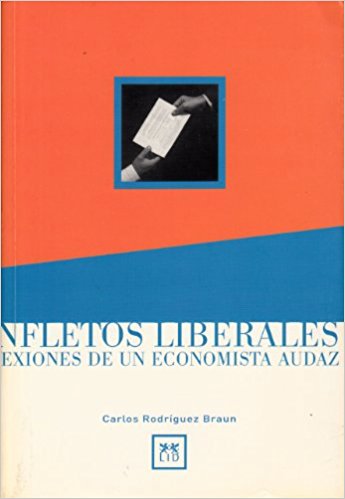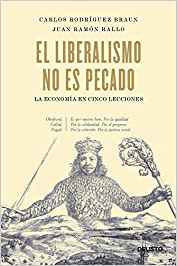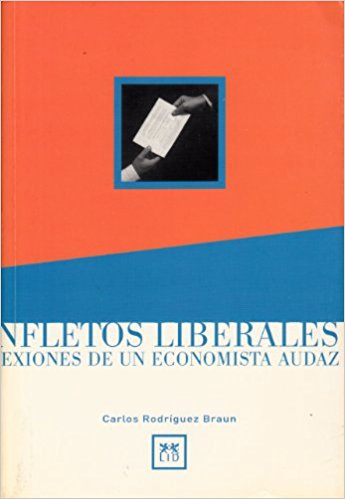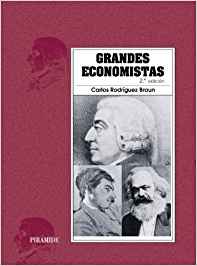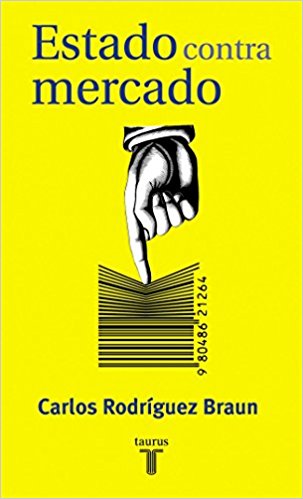Topics
Specific topics
Who is Carlos Rodríguez Braun?
Economist, journalist, and professor, Carlos Rodríguez Braun is an international reference in the fields of economics, liberalism, and communication.
He holds a degree in Economics from the Universidad Católica Argentina and a Ph.D. in Economic and Business Sciences from the Universidad Complutense, where he was a professor of the History of Economic Thought.
Currently, he is a professor of Economics at the CEFAS Center of the San Pablo CEU University and in the Master in Journalism at the newspaper El Mundo. He is a member of the Colegio Libre de Eméritos and a corresponding member of the National Academy of Economic Sciences of Argentina.
What are his conferences like?
Being a rigorous academic, Carlos Rodríguez Braun is also a recognized communicator, and his lectures are inspiring, original, and highly entertaining. He is a clear and brilliant speaker with a contagious sense of humor.
Taking a broad and multidisciplinary approach to economic and business reality, Carlos analyzes and presents it in its interrelationships with society, politics, culture, moral values, and the media.
What is his trajectory?
In addition to his extensive teaching and research experience, with academic publications in Spain, Europe, and America, Carlos Rodríguez Braun has a significant presence in the press, radio, and television. He has served as the deputy director of Cambio 16 and the program "El valor del dinero" on TVE, a veteran columnist for Expansión and La Razón, and a daily contributor to Onda Cero.
Author of thirty books and a translator of eminent economists, he has received awards such as the Juan de Mariana Award from the Juan de Mariana Institute, the Free Enterprise Award from the Rafael del Pino Foundation, the Exemplary Dissemination of Work Award from the Know Square network, and others.
Conference selection:
Economic Progress and Freedom: An Inconvenient Truth
While pessimism and even apocalyptic predictions characterize most speeches about the economic and business world, the truth is that humanity has prospered in all imaginable areas and levels, previously considered unimaginable. The discomfort of this truth is that such well-being growth is not due to political intervention but to respect for the institutions of freedom that have facilitated innovation and encouraged the creativity of entrepreneurs and workers.
The Entrepreneur and His Enemies
Entrepreneurs, creators of wealth and employment, have many enemies in various fields, from academia to politics, and from the pulpit to journalism. However, the most important and least analyzed enemy is the hostility towards entrepreneurial values shared by those who play a role in the business world or claim to defend it.
Liberals of All Parties
Nobel laureate in Economics, F.A. Hayek, began his book "The Road to Serfdom" with this famous dedication: "To the socialists of all parties." However, while anti-liberalism is likely hegemonic in both left and right, there are substrates and nuances of liberalism in all political spheres that are as interesting as they are unexplored.
There is No Economy Without Morality
The market and the company are usually analyzed as if they inherently have serious moral deficiencies, which political power, apparently free from such deficiencies, must solve by curtailing the rights and freedoms of citizens. It is essential to appreciate the ethical content of the business world and the crucial role of religion in safeguarding citizen freedoms.
Companies Belong to Their Owners
The key to a society of free and prosperous men and women is legal security, especially regarding individual property. However, there is insistence from political correctness with the idea that companies do not belong to their owners but to society as a whole. Hence, the power has a license to harass them in the name of various plausible collective objectives, from equality to climate.
Culture and Business
It is known that the world of culture, like that of intellectualism and the media, has a long-standing anti-business inclination. However, at the same time, there is a contrary trend that recognizes and appreciates the role of companies, present in art and ideas from ancient times to the present day.
Books
Related speakers
CONTRATAR CONFERENCIANTE

